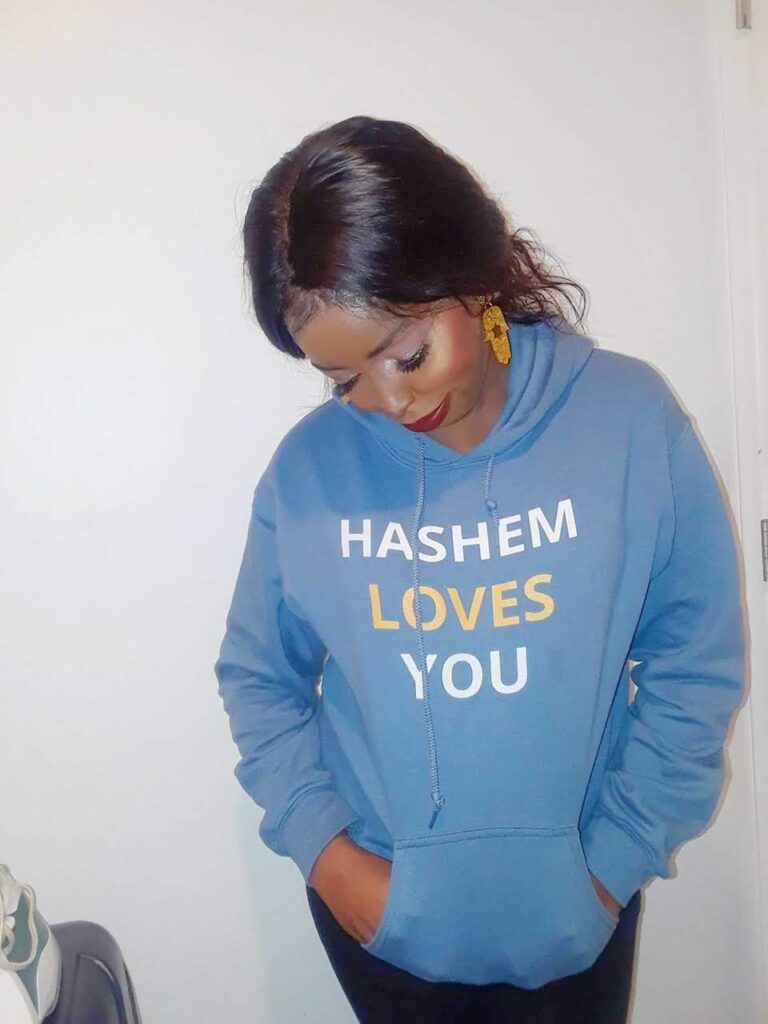
Growing up as a Black woman in a primarily white, Orthodox Jewish community wasn’t always easy for Elisheva Rishon. Despite Judaism being a religion that prides itself on acceptance, negativity and discrimination can unfortunately exist beneath and on the surface — even among the attitudes of the most upstanding Jews. While the Torah is perfect, humans are the ones who carry it out, and often, we falter.
Maybe it’s due to environment and falling into step with those around us, even when it’s wrong, or maybe we’re not strong enough to stand up for what we know is right, or maybe there is no real explanation. America’s history is plagued with racism, and that attitude can sadly seep into the Jewish community, even though we, too, have a shared past (albeit much further back) as slaves.
America is a very unique country in that it was built with racism at its center. It may not have been a core tenet of the Constitution, but it’s always been there. Elisheva (who’s in her 30s — she prefers to keep her exact age undisclosed) explains that a lot of religious communities assimilated into the American culture, and that included a racist mentality for some. “America was literally built on the backs of Black people,” she says.
America did experience a renaissance of sorts last summer, where many eyes were newly opened to the harsh realities Black people face in America. While it was a controversial topic in many Jewish communities, Elisheva was so grateful for the light it shed on what she has been through (more on that below) and is hopeful that the conversation will continue easing the way for those across all religious spectrums.
Fortunately, her spirit hasn’t dwindled through her challenges — she’s channeled her pain and passion into a clothing company called Eli7 Designs, where she designs pieces that empower others, promoting achdut (brotherhood) and positivity.
No matter your religious orientation, race or culture, the brand has messages anyone can integrate. In a time where our unity is more important than ever, the messages cross boundaries and inspire consumers to take a look inward and then focus our own energy toward spreading more light.
Her Jewish Journey
Elisheva grew up in Crown Heights and Flatbush, religious communities in Brooklyn. Her mother was born Jewish, while her father converted. Elisheva has happy memories from her childhood, but also painful ones.
She was often excluded as a child, and her parents were as well — not being invited to community conversations on important topics, including those that were directly about civil rights.
In addition to the exclusion, Elisheva was often called names — a group of girls she played with called her “dirty” early on — and she was the recipient of not-so-friendly looks in shul and at school. She says she always preferred sitting in the front row during synagogue services, because, if not, both adults and their children would turn back to look and stare. “People also couldn’t understand why I didn’t fit into what their stereotype of a Black person was,” Elisheva shares. “They would say, ‘Black people talk this way or dress that way.’ I wasn’t even allowed to be myself because I had to be this version of what they thought I should be. For the longest time I didn’t know who I was.”
“I wasn’t even allowed to be myself…for the longest time I didn’t know who I was.”
Elisheva Rishon
She remembers being a child at her brother’s bar mitzvah in shul, and another girl looked around and said to her parents, “Why are there all these Black people here?” She walked away deeply confused, and the frustration and pain of that discomfort at a simchah (celebration) her own family was hosting stayed with her ever since.
She spoke to her parents about issues occasionally but saw the pain they experienced on her behalf when she did, and she didn’t want to be the one to cause that. Because her mother is a baalat teshuva (returnee to Judaism) and her father is a convert, they didn’t grow up in the Orthodox Jewish world and she felt they couldn’t really understand what she was going through. She saw the parents of other Black kids in her community come to school or synagogue to try and stop the negativity their own kids were experiencing, and Elisheva didn’t like that option either. “I didn’t want it to look like I didn’t know how to take care of myself,” she reveals. “I wanted to be independent.”
Fighting for Truth
As she grew up, Elisheva saw the few observant Black friends she did have from her communities becoming less observant. They didn’t want that added challenge in their lives and she doesn’t blame them. She thought at times, “Why am I fighting to exist every single day? Why am I fighting for this? It takes so much energy and strength to still be here.”
Elisheva has had experiences in which she wavered, and she found “off the derech” friend groups to be more accepting. (Off the derech refers to people who have left some or all of Torah observance.) “They’re already seen as rejects,” she says.
Ultimately, she chose not to sacrifice her own Judaism because of the opinions of others. She learned she had to separate the religion from the culture surrounding the religion. “Hashem is perfect and everything He says is perfect,” she says. “The culture, however, is different. I realized if I left the religion because of how I was being treated, I would just be hurting myself. It had nothing to do with Judaism.”
“Hashem is perfect and everything He says is perfect. The culture, however, is different.”
Elisheva rishon
One spark that showed her she had to stay on the path was when she was invited by another Black Jewish friend for a Shabbat meal. That friend explained that her daughters were feeling insecure about their skin color after experiencing discrimination in school. “One was feeling contempt toward her sister because her skin color was a bit lighter,” Elisheva shares. “I was hearing this and just thinking, ‘Oh my gosh, another generation is going through what I went through. Nothing has changed.’ I felt a push to make a difference.”
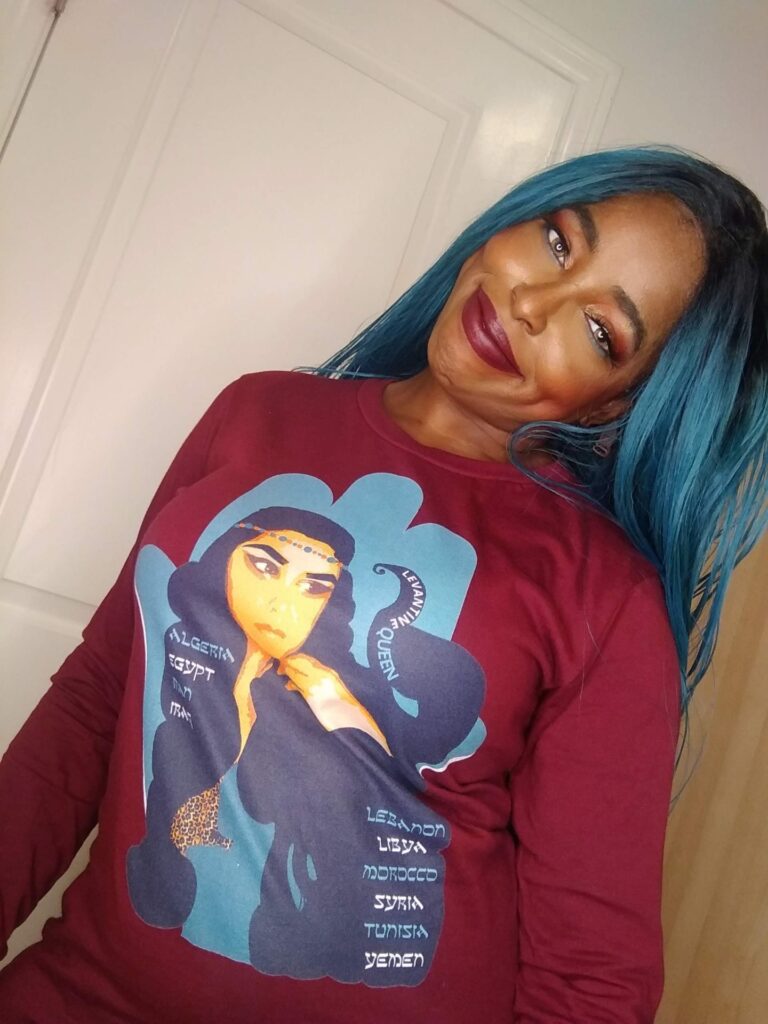
She also understood that while her experience may have put a stumbling block in her path, others have their own challenges and so many are fighting through adversity. “Everyone has their own struggle. You see things like Unorthodox [a book and now TV series about a woman leaving her religious Orthodox community] or other stories of people leaving the religion, but maybe it’s just a type of orthodoxy that you’re practicing that doesn’t agree with you,” she shares. “You don’t have to throw away the whole thing; you just have to find your place.”
“I know that I’m choosing the harder life, but if no one does it, no one will do it,” Elisheva says. She spoke out on social media about race in Judaism and explains she got a lot of backlash for it. It wasn’t until the conversation around race became more mainstream last summer that things started to change.
Elisheva is continuously working to find the right place for herself Jewishly. Right now, she lives in Los Angeles. While she tries to make herself at home, building new friendships is something that’s always been a challenge.
“I’ve gone to Jewish events with non-Black friends, even other converts of different races and they get different approaches than I do,” she explains. “Someone will come up to us and introduce his or herself to my friend and then turn to me and start asking questions about when I converted, or [investigate] how I’m Jewish. I’ve left events when it’s happened multiple times in the same night. It’s not a good environment for me.”
She explains she went to a Shabbat meal with a Latina friend of hers who converted, and others thought this woman was just Persian, Moroccan or a mixed Israeli. She didn’t get the same questions Elisheva did. “With Black people it’s different,” she explains.
It also doesn’t stop with the observant Jewish community. She also experiences challenge on the other side from the non-Jewish Black community. She explains in a neighborhood like Crown Heights, for example, Jews will make comments, saying things would be safer if there were fewer Black people around. And, on the flip side, Black people will say the neighborhood would be less poor if there were fewer Jews around. “Black Jews are caught in the middle,” she says.
“I know that I’m choosing the harder life, but if no one does it, no one will do it.”
Also, she says when you look Jewish, you’re held to a higher standard because others believe that your actions represent the whole. It’s the same when you’re Black, so Elisheva feels the pressure to represent both groups well. “People don’t understand the difference between a people and a person so I’m often defending both sides in the best way that I can,” she reveals. “It’s frustrating, exhausting and I try to avoid it as much as possible.”
Through all this, she decided to turn her energy inward and become part of the solution instead of just weathering the storm of the problem, and she set out to make a difference.
Spreading Empowerment
To combat the issues she was seeing around her, Elisheva turned to fashion. “People see my brand and that I’m an adult now and still religious … It helps me take my strength back.”
Fashion was something Elisheva has used for a while to express herself and find confidence. “Earlier in life, fashion became something that would distract attention from the fact that I’m Black,” she reveals. “Eventually, I found power in it because you can use fashion to emulate what’s happening in the world or what you want to happen.”
When it came to Jewish empowerment, Elisheva says she couldn’t find any clothing that had an expression on it that had much meaning. So, she changed that. She put gam zu l’tova on a shirt, which means “also this is for the good.” She was determined to bring those types of messages to light, and spark conversation on what they mean in our lives. “[Gam zu l’tova] is an amazing way to look at something negative,” she says. “Why don’t we talk about these things?”
Elisheva’s clothing brand was a long time coming. She started to work on the line years prior — conjuring ideas and brainstorming messages, but she wasn’t ready right away. Ironically, her brand was officially born when she was in one of the lowest periods of her life.
She had just moved to Los Angeles, ended a bad five-year relationship and was struggling financially. She met others around her who were also struggling with their own issues, but she didn’t feel like she could give them anything or help them, as she was in her own place of difficulty. Then, something inside her switched into gear. She realized that the only way to counter negative energy is to bring in light. “You have to counter it with the exact opposite,” Elisheva says. “So that’s what I did. It was the worst time in my life, but it was also the most brilliant thing I could have done.”
The brand itself — launched in 2019 and run exclusively by Elisheva — became a vehicle for healing, she explains — not just for the people in her orbit, but for herself. As she launched products, customers that bought them sent her photos of themselves in them. “They would tell me their life stories and describe how the pieces made them feel empowered, how they related to their life triumphs and struggles,” she explains. “I never anticipated that.”
She believes the response comes from her own vulnerability. “They can feel the energy of where I’m coming from.” She also explains that so many others are on their own spiritual journey, and that conversation is more open than it’s ever been. “People are looking for something,” she says. “They see that I’m doing that, too, and we’re helping each other get to where we need to be.”
Elisheva has a day job to pay the bills, working as an office assistant in a showroom, but this — Eli7 Designs — is where her heart lies. She dreams of making it a full-time thing one day.
“Being Black and Jewish has been frustrating my entire life, but now it’s my superpower,” she says. “I have clarity to see how we can be working together and building each other up.”
“Being Black and Jewish has been frustrating my entire life, but now it’s my superpower.”
Elisheva Rishon
One of the ways she turns that challenge into light is through pieces that feature empowering Jewish sayings, like the gam zu l’tova mentioned above, and also prominently display Jewish heroines. Right now, she has Yehudit featured on the site, and plans to include her other favorite Jewish power women — Miriam and Queen Esther — on pieces in the near future. “These women did not freeze when under pressure,” she explains with a laugh. “They took action into their own hands and got things done.”
She separates her work into different “collections,” like “That #JewishVibe collection” or “The Isha collection.” She printed Hebrew words like Malka (meaning queen), mehamemet (meaning stunning), and ko’ach(meaning strength) on shirts. To translate the women and messages to print, Elisheva focuses on how she wants people to feel when they see the item. She looks deeply into different colors, deciphers what they mean and how others will react to them. Lighter colors give off a more spiritual, softer vibe, while darker ones have a stronger connotation.
Tzniut (modesty) is an important value for Eli7 Designs. She tries to make each item modest in itself, but if she produces a tank top, she will show how you can wear it modestly, and make you feel good wearing it like that.
With everything she does, Elisheva wants transparency and honesty to be at its core and she continues to produce pieces for her brand that promote empowerment and healing. “Anyone who thinks they’re done healing is not done healing,” she says. “It’s healthy to talk about it.”
In her downtime, Elisheva is constantly drawn to the natural inspiration all around her. “Los Angeles has the most beautiful sunsets,” she says. “I look at that and just feel it’s Hashem’s way of saying, ‘Anything is possible,’ or, ‘Do you see how I painted that sunset? Yeah, that’s right.’”
“In Judaism, there are layers underneath layers underneath layers. There’s more to this world than what we see and there always will be,” Elisheva notes. “I want to dig underneath the tree to see its roots and want to know what’s behind this world… We should never stop learning.”
For more from Elisheva, you can follow her on Instagram at @therealeli7designs, or check out Eli7Designs for yourself right here!




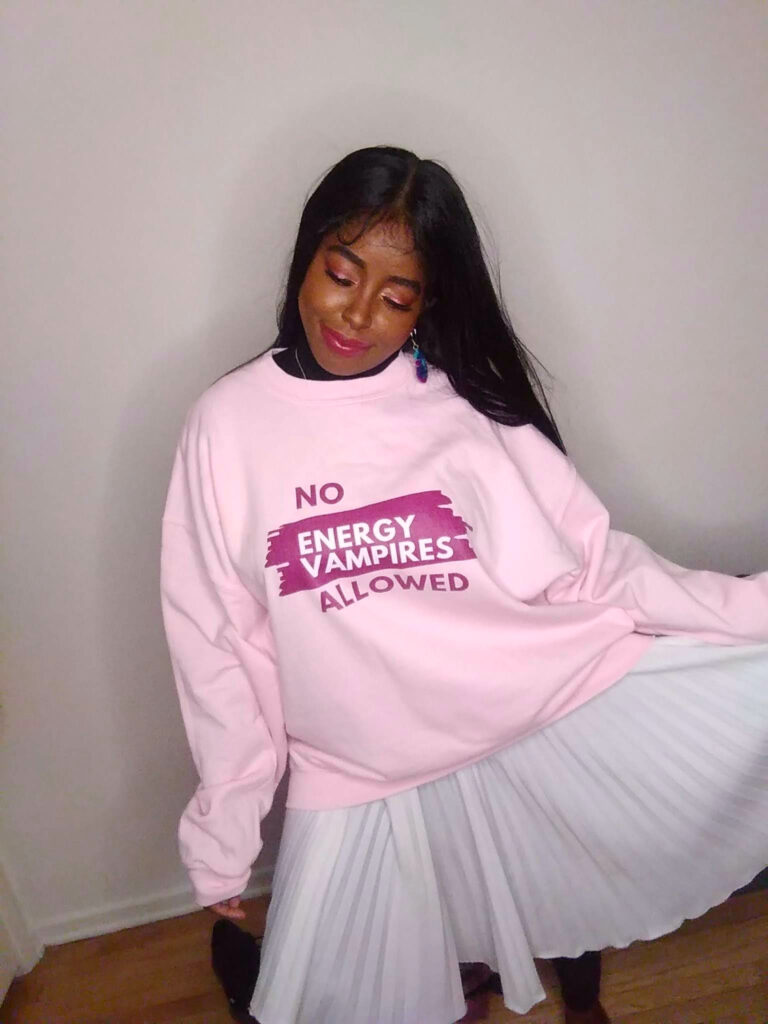

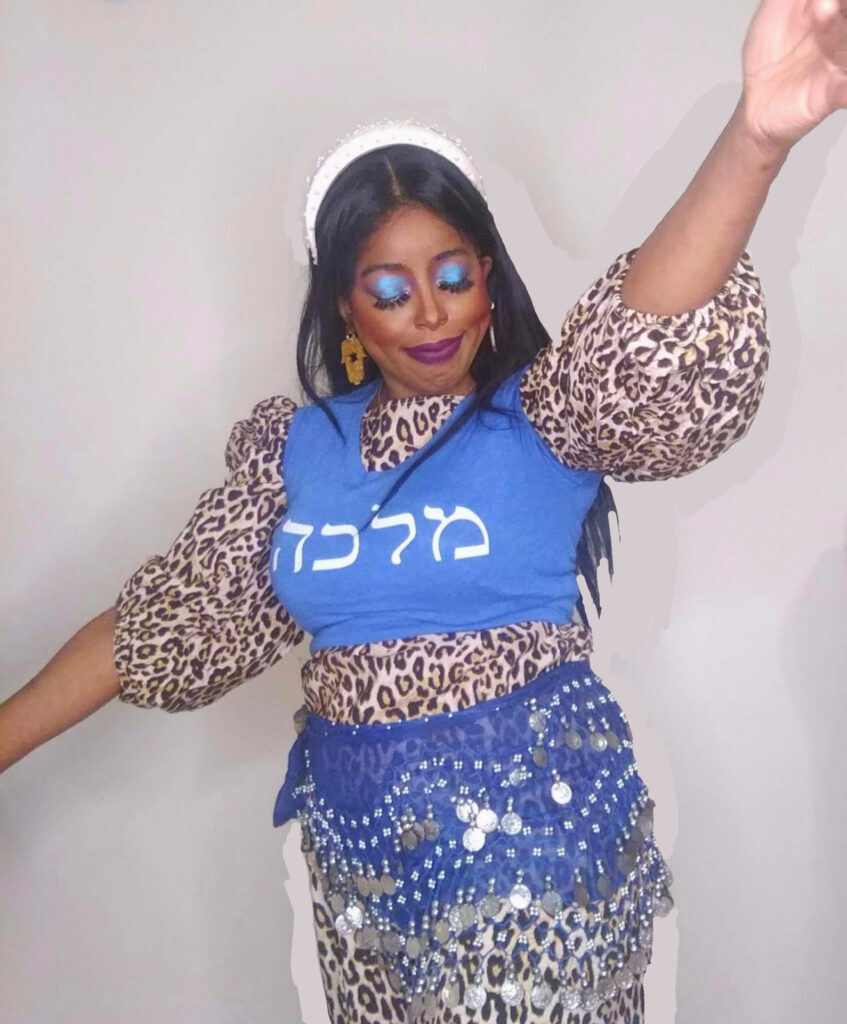
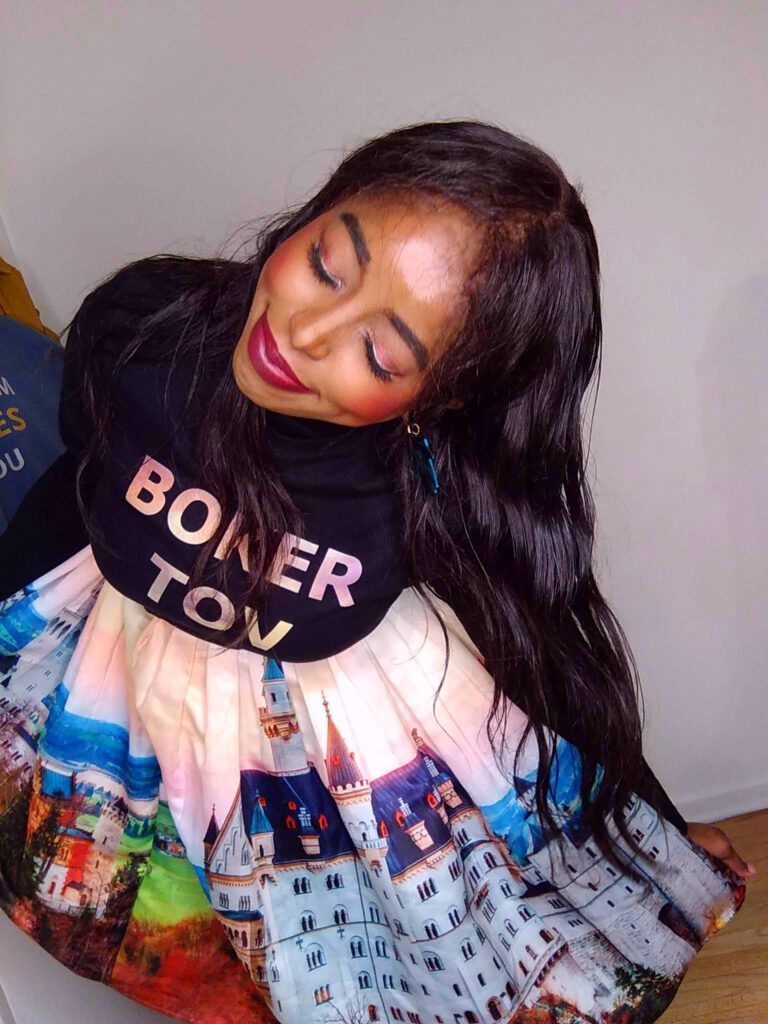
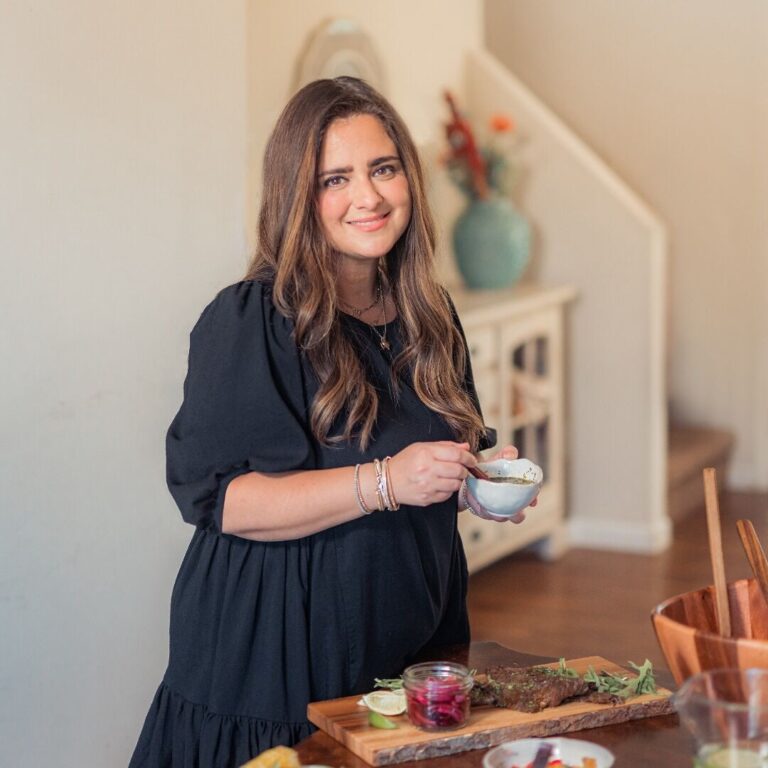


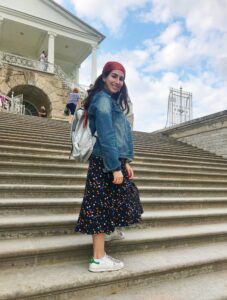
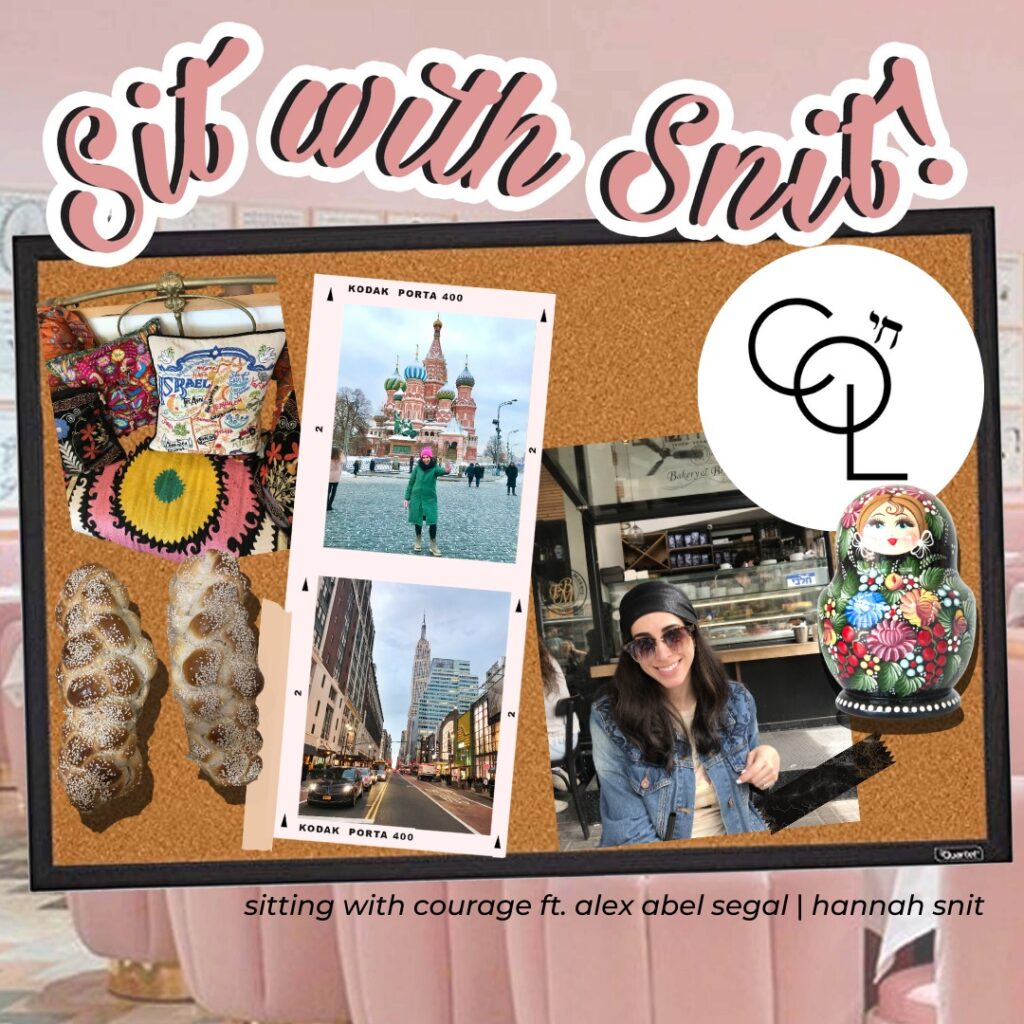
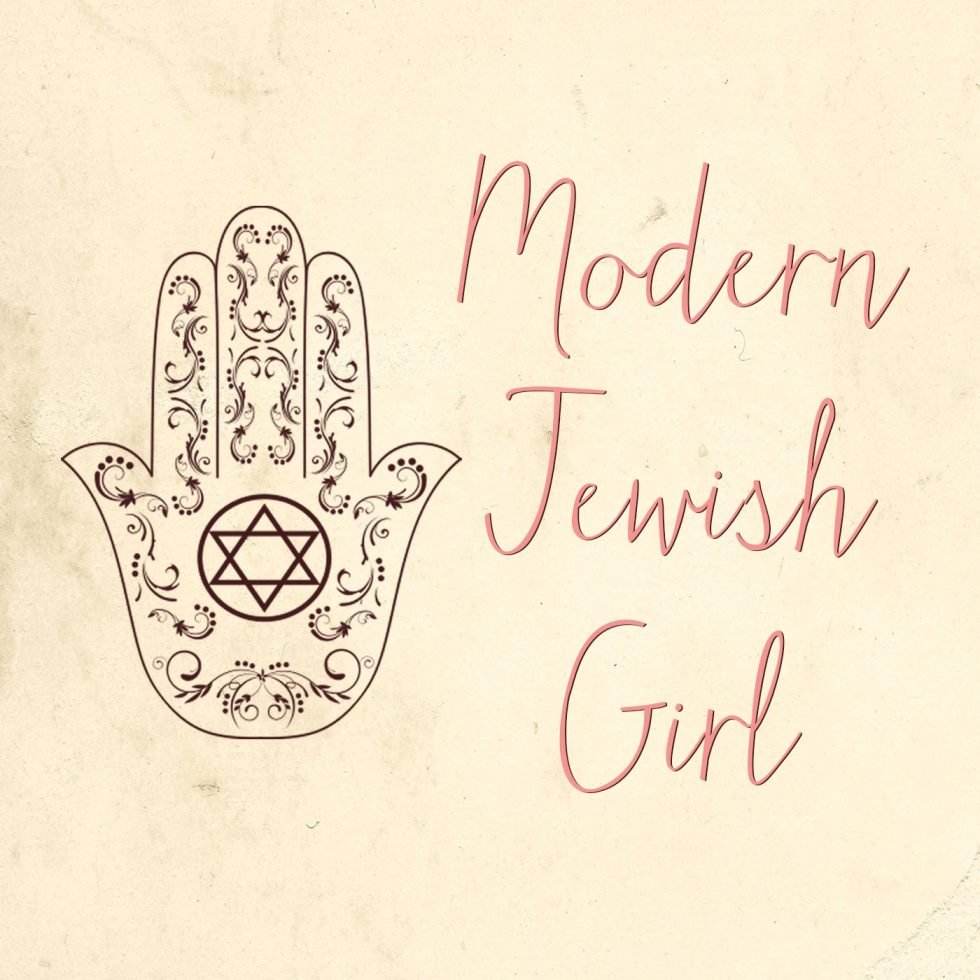
“I TELL you, on the Day of JUDGMENT people WILL Give Account for EVERY Careless Word they Speak.” Matthew 12:36
“How terrible it will be for you that call evil good and good evil: that put darkness for light and light for darkness:
that put bitter for sweet and sweet for bitter.” Isaiah 5:20
“Do NOT be Deceived: GOD is NOT mocked, for Whatever you SOW, you WILL REAP” Galatians 6:7
“Whatever is Hidden Away Will be Brought Out into the Open and WHATEVER is Covered Up WILL
be Found and Brought to LIGHT. Luke 8:17
you are a “white supremacist TOOL & have the actions of a ‘willie lynch letter wench gatekeeper!”